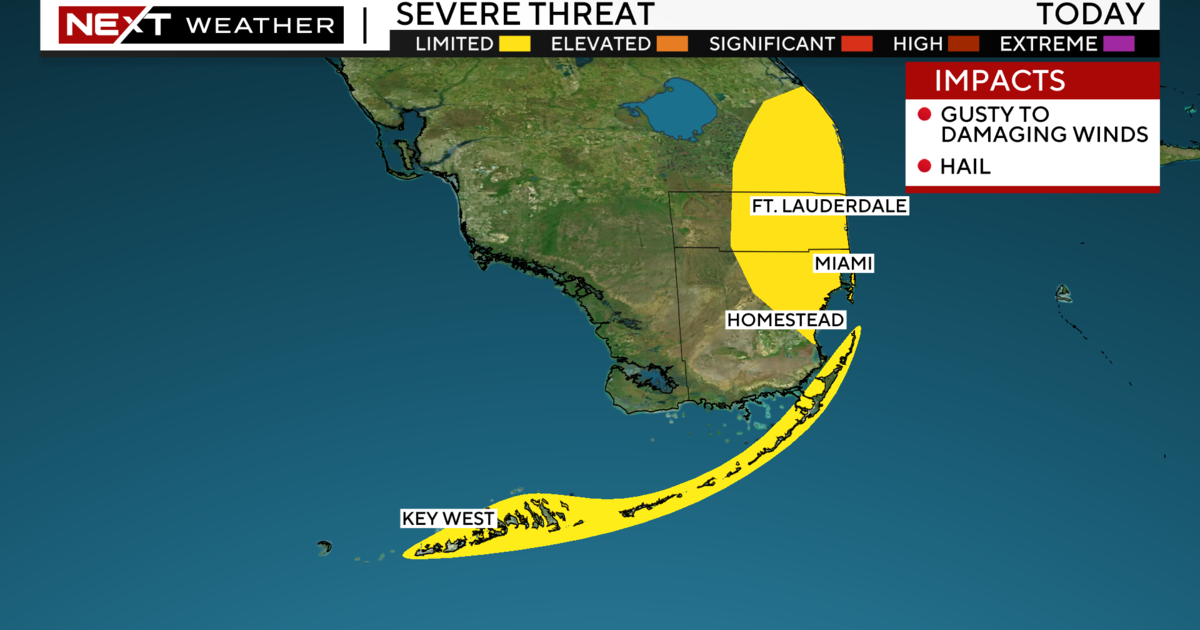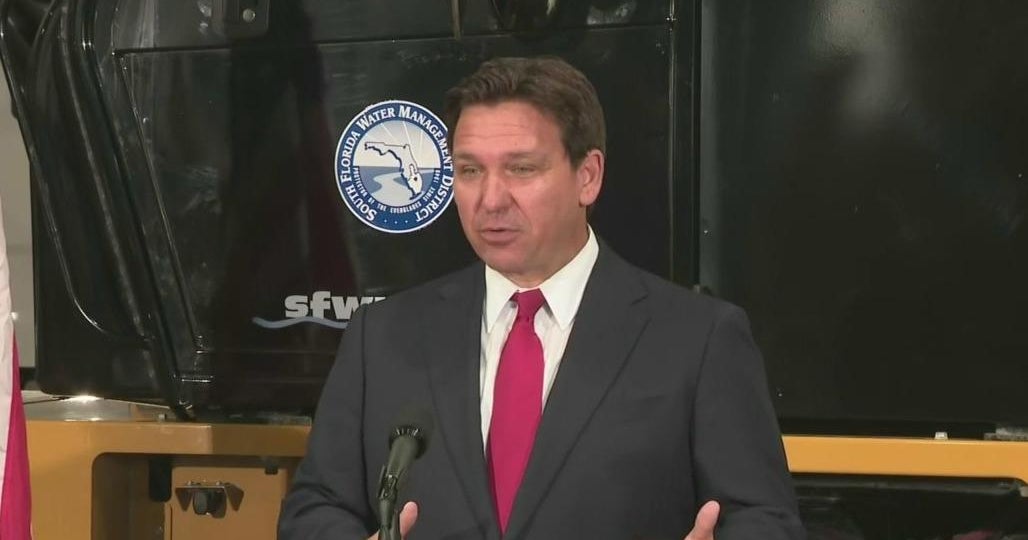Houston Dilemma: Stay In Rising Waters Or Risk Flooded Roads
Follow CBSMIAMI.COM: Facebook | Twitter
WASHINGTON (CBSMiami/AP) — As Tropical Storm Harvey's relentless rains continue to swamp the Houston area, many who live there are being faced with a tough choice.
Do they try to stay in their homes as the flood water continue to rise, or should they make a break for it and risk escape on the city's flooded roads?
It's a no-win situation. There's nowhere for the rain or these people to go.
It matters, because water kills. Even though wind is fierce, water is responsible for nearly 90 percent of the deaths in hurricanes, according to a 2014 study by acting U.S National Hurricane Center director Ed Rappaport.
In general, if people are safe, they shouldn't move. In their updates on the storm's progress Sunday, the Hurricane Center underscored in capital letters its warning to "not attempt to travel ... if you are in a safe place."
Former National Hurricane Center directors Neil Frank and Max Mayfield fear casualties from Harvey could rise over the next few days if stir-crazy residents decide to venture outside of their homes and into the high waters.
"This is going to go on a lot longer than most people think," Mayfield said.
Gregory Waller, coordinating meteorologist at the National Weather Service's West Gulf River Forecast Center in Fort Worth, Texas, especially worries about people going out at night.
"The dangerous time would be the overnight hours when you just can't see the magnitude or the impact of the floodwaters," Waller said.
Frank, who left the Miami-based hurricane center after 13 years as director to spend 20 years as chief meteorologist at KHOU, Houston's now-flooded television station, knows firsthand how difficult the decision about whether to stay or go can be.
On Sunday, his grandson, the father of a new baby, was asking his advice about whether he should risk driving through floodwaters or stay put and hope the water wouldn't overtake them in their home.
"This is a major, major difficult decision," Frank said from his relatively safe home 40 miles (65 kilometers) west of Houston. "You can't call anybody on the phone and say, 'Help me!' And rescue workers can't even get to you."
Frank's grandson is staying put. For now.
Although Harvey has spawned a number of tornadoes, they are far less dangerous and less likely than the flooding, Mayfield said. So he said it is still best to get high above the water than worry about going to the basement to avoid tornadoes.
Leaving Houston before the storm conceivably could have helped. But residents got conflicting advice. Gov. Greg Abbott urged people to flee from Harvey's path, but the Houston mayor issued no evacuation orders and told everyone to stay home, saying it was too difficult to empty the city of 2.3 million people.
The National Weather Service is predicting another 20 to 25 inches of rain for southeast Texas with some parts of Houston expected to accumulate as much as 50 inches of rain.
"It just really is a disaster that is only now beginning to unfold," said meteorologist Patrick Burke of the National Weather Service's Weather Prediction Center. "I think we're going to run out of words to describe this, honestly."
Even before Harvey struck, Houston was already more saturated with rain than normal, according to Waller. Post-Harvey, nearly all of the region's waterways are at record-high levels, he said.
Waller says some forecasts have rain tapering off by the end of the week.
(© Copyright 2017 CBS Broadcasting Inc. All Rights Reserved. The Associated Press contributed to this report.)



